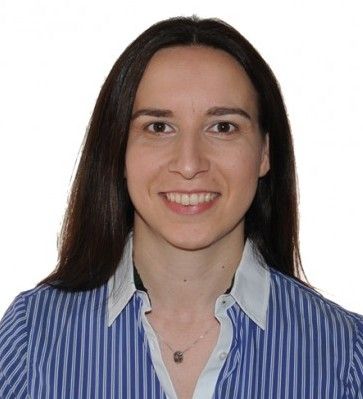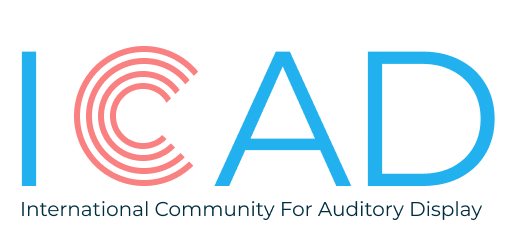ICAD Board Secretary and ICAD 2021 Paper Chair
So, who are you?

I was born and raised in Volos-Greece. I have studied Musicology at the National and Kapodistrian University of Athens (NKUA), and Music Technology at New York University (NYU) in the States. Currently, I am an Assistant Professor of Music Technology in the Department of Music Studies at NKUA. My research focuses on immersive and spatial audio. I am a member of the Laboratory of Music Acoustics and Technology (LabMAT), where I work on projects that look on if and how 3D audio and Immersive Auditory Displays can be used to improve supervised music training, and music instruction. Recent examples of my research work can be found in the SONICOM project, a FET PROACT Horizon2020 program, aiming at the design of a new generation of immersive audio technologies which will revolutionize the way people interact within AR/VR environments.
How did you end up working on Sonification and Auditory Displays?
While studying at NYU, my dissertation advisor, Dr. Agnieszka Roginska, had me apply for a ThinkTank scholarship to attend the 2012 ICAD conference in Atlanta and present my spatial-audio-related research to the doctoral consortium. This was the first time I got to extensively experience sonification as a research field. During that conference, and the many more that have followed, I got to meet several scholars in sonification/auditory display research, which over the years have become my close friends and collaborators.
What is the role of Sonification/Auditory Display in your research?
The creation of convincing, effective, and agreeable virtual immersive auditory environments is a target goal for spatial audio applications. Auditory displays are systematically used as a means for subjectively evaluating any spatial audio algorithm, processing, or application, in an ecologically valid manner. Given that, I would say that virtual immersive auditory displays lie at the core of my research.
Anything special ICADders should know about you?
To me ICAD is the most welcoming community I have ever joined. Interactions with fellow ICADders have always been pleasant and informative. I find the conferences to be conducive to my learning, as well as my academic/research development. I believe that they offer an ideal environment both for early-stage researchers to present their work and get constructive feedback, and for academics and experienced researchers to discuss their work and build strong connections with others in the community.
What would you like to say to ICADders?
I would like to extend an invitation to everyone whose research interests are related to sonification/auditory display, or who find these research disciplines interesting and are curious to learn more about this type of work, to join the ICAD community, start following the annual ICAD conferences, and get involved!
What is the study/tool/work in the field of auditory display you are most proud of?
I am very proud of a tool that is currently being developed by LabMAT as part of the Greek public-funded project ASMA (Assistance for students in Singing and Music Aesthetics), which is using Immersive Auditory Displays as a means for assisting young choir singers practice in any space, while maintaining realistic -from a performance perspective- auditory conditions. That is, it helps them practice while experiencing the acoustic properties of the space they will have to perform into, feeling surrounded by fellow choir members in various arrangements, and keeping a realistic spatial relationship to the accompanying music ensemble, when applicable. Information on this research, which will be published in the coming months, as well as on the ASMA project can be found at https://labmat.music.uoa.gr/asma/.
Any way to learn more about your work or reach out to you?
People should feel free to reach out to me via email at: a.andreopoulou[at]music[dot]uoa[dot]gr or by visiting my website: http://scholar.uoa.gr/aandreo. I am open to discussing research ideas and exploring collaboration possibilities.
